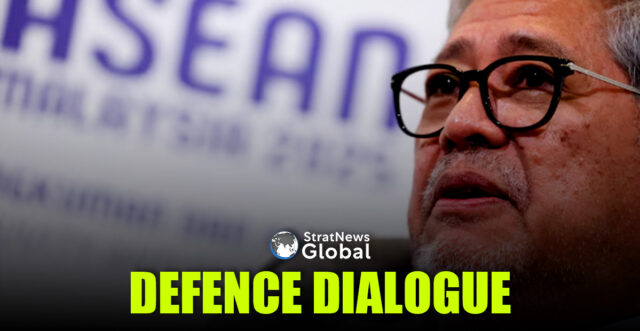The Philippines and the European Union (EU) have agreed to initiate a security and defence dialogue aimed at addressing emerging threats such as cyber attacks and foreign interference, Foreign Minister Enrique Manalo announced on Monday.
The announcement came during the visit to Manila of EU foreign policy chief Kaja Kallas for meetings with Manalo as well as a courtesy call with Philippine President Ferdinand Marcos Jr.
“We hope that through the security and defence dialogue we will remain proactive and united in addressing emerging security threats that transcend borders, cyber attacks and foreign interference and manipulation of information,” Manalo said in a joint briefing with Kallas.
‘Dedicated Platform’
Kallas said the new dialogue will be a “dedicated platform” in which the regional bloc and the Philippines can deepen defence cooperation, share expertise on security matters and explore joint initiatives.
“This will serve as a dedicated platform to strengthen our collaboration, share expertise in security and defence, and pursue joint efforts that support both regional and global stability,” Kallas said.
Her Manila visit came on the heels of a security forum in Singapore, where she advocated for building “economic alliances” to counter China’s growing influence.
Southeast Asian nations have shown interest in such partnerships, aiming to strengthen their economies amid concerns over escalating US-China tensions and renewed tariff threats from the Trump administration.
EU Strategy Faces Challenges
However, the EU’s approach faces challenges as it seeks to convince a region economically intertwined with Beijing that the threats posed by Russia and China are shared global concerns.
The Philippines, a US treaty ally with ongoing maritime disputes with China in the South China Sea, is expected to be more receptive.
Meanwhile, US Defense Secretary Pete Hegseth, speaking in Singapore, called on American allies in Asia to raise defence spending to 5% of GDP — a target Philippine Secretary of National Defense Gilberto Teodoro said his country cannot afford.
Philippine-EU Dialogue
The dialogue will be part of a partnership and cooperation agreement between the Philippines and the EU, which was established in 2012 and entered into force in 2018.
Kallas said the EU remains committed to upholding a rules-based order, promoting peace and addressing common concerns in the South China Sea and Russia’s war against Ukraine.
“We reject any unilateral changes to the status quo, including use of coercion,” Kallas said when asked what the EU’s red lines are when it comes to China’s activities in areas like Taiwan and the South China Sea.
China claims sovereignty over nearly all the South China Sea, including parts of the exclusive economic zones of Brunei, Indonesia, Malaysia, the Philippines and Vietnam.
(With inputs from Reuters)





